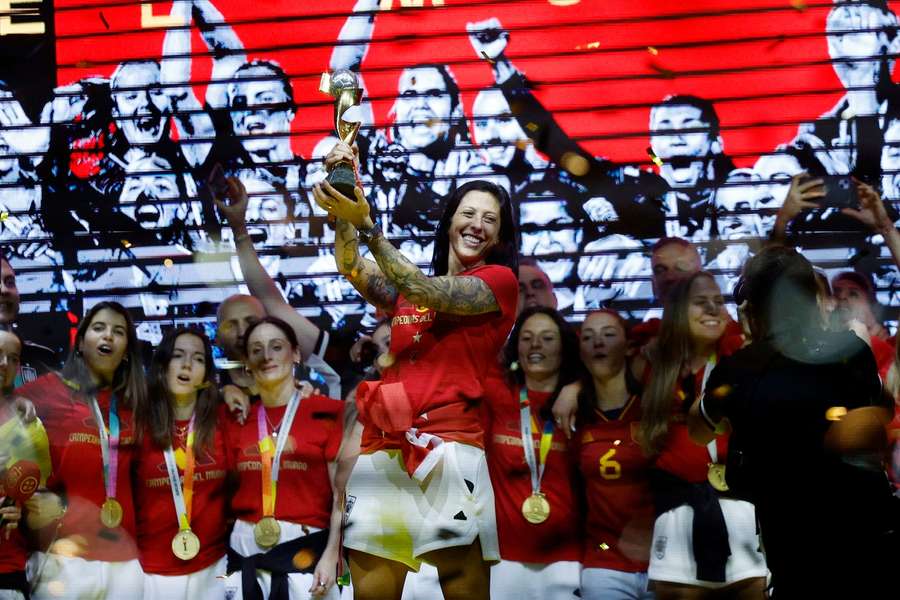Spain's women players to end boycott after federation commits to change

The decision was reached after more than seven hours of meetings at a hotel in Oliva, an hour from Valencia, involving the players, RFEF officials, the National Sports Council (CSD) and the women's players' union FUTPRO.
The players had said they would not represent Spain until there were further changes at the federation, deepening a crisis that started after former (RFEF) boss Luis Rubiales kissed Jenni Hermoso on the lips during the World Cup presentation ceremony.
"A joint commission will be created between RFEF, CSD and players to follow up on the agreements, which will be signed tomorrow," CSD President Victor Francos told reporters.
"The players have expressed their concern about the need for profound changes in the RFEF, which has committed to making these changes immediately."
Neither Francos nor Rafael del Amo, president of the RFEF committee for women's football, would elaborate on the changes to be made, only saying they would be announced "soon".
"The players see it as a rapprochement of positions. It is the beginning of a long road ahead of us," FUTPRO president Amanda Gutierrez told reporters.
"Once again, they have shown themselves to be coherent and the vast majority have decided to stay for the sake of this agreement."
Later on Wednesday, the RFEF announced the first measure was to remove the adjective "female" from the women's national team's official brand to harmonise it with the men's squad. From now on, both will be known as "Spanish national football team".
"Beyond it being a symbolic step, we want it to be a change of concept, and the recognition that football is football, no matter who plays it," RFEF President Pedro Rocha said, adding this would promote a more egalitarian concept of the sport.
The remaining changes have yet to be made public.
After most of the Women's World Cup winners were selected for upcoming games, the players said earlier this week they would take the "best decision" for their future and health and after studying the legal implications of being included in a squad list they had asked to be left off.
They also alleged the call-up was not issued within the parameters of the world's governing body FIFA.
The players could have faced sanctions including fines of up 30,000 euros and the suspension of their federation licence for two to 15 years if they had refused the call-up.
Twenty players who said they were boycotting the team were called up by new coach Montse Tome, and while all of them reported for training on Tuesday, two decided to leave the squad.
Mapi Leon and Patri Guijarro, who were part of a revolt that pre-dated the World Cup, said they did not feel mentally ready to return and said they needed to "see a process" of change.
"The situation for Patri and me is different from the rest of my colleagues. In the end, we are not in a state to return," Leon told reporters after leaving the camp.
Francos said that any players who dropped out of the squad would not be sanctioned.
